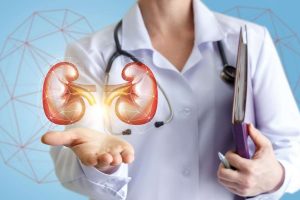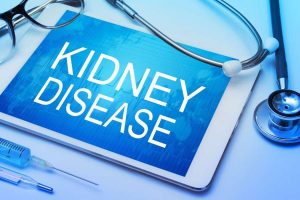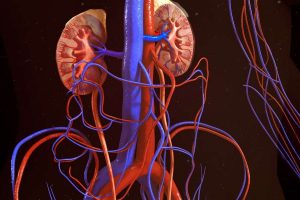Healing options currently available for kidney disease may not provide a cure but can help:
- Slow the progression of illness;
- Treat underlying causes and contributing factors;
- Treat complications of disease;
- Replace lost kidney function.
While undergoing treatment for kidney disease, there are still some things you can do at home which can go a lengthy way to assisting you to manage the disease, its underlying causes, its progression and possibly replace lost kidney function.
Understanding what you can do successfully at home gives you greater ownership of your health and your treatment and can help you feel more in control of your life.
Care at home
kidney disease does not have to stop you from living a fulfilling life. You will more than likely be advised to follow a special diet to slow the progression of the disease (see special diet section). It is important to understand why you should follow this diet.
Controlling your diet, blood pressure, and blood glucose levels, stopping smoking and losing excess weight can also help you manage the effects of kidney disease and slow the progression of the disease. It can also contribute to treating conditions that may cause kidney disease:
- Diet: Diet restraint is necessary to reduce the rise of kidney disorder
- Check of blood sugars: Sustaining stable check of diabetes is significant.
- Individuals having diabetes and do not measure their blood sugars hold a much greater chance of all difficulties of diabetes, comprising of kidney disease. Again looking at what you eat can help you achieve this.
- Stopping smoking: Smoking can cause clogging of the arteries, difficulty breathing and shortness of breath and can make illnesses such as high blood pressure and heart problems worse.
- Loss of excess weight: Being overweight puts additional strain on the heart, joints and lungs making breathing difficulty, increasing blood pressure and can lead to diabetes, heart failure, joint problems.
Medication
Some medications can set back the kidneys due to the toxicity. These need to be avoided where possible however if you have to take them they should be given in doses adjusted for your stage of kidney disease. Your doctor will be aware of these medications when prescribing.
Sometimes it may be necessary to purchase medicines over the counter, so it is important you know which medicines you need to avoid or use with extreme care if you or a loved one are suffering from kidney disease.
You should always communicate to your dietician or physician frequently to ensure any complications or issues can be addressed quickly. Whenever you are hurting from kidney disease but also have conditions such as diabetes, high blood pressure, or high cholesterol you should take all medications as directed and see your health care practitioner as recommended for follow-up and monitoring.
Having these combinations of illnesses can complicate treatment and in many cases increase the risks of developing other complications including more damage to the kidneys. This may mean treatment at home may not be enough, and you would have to consider medical treatment; the options available and what this means for you and your family.
Medical treatment
Dialysis
Kidney disease requires medical treatment in the form of dialysis (hemodialysis or peritoneal dialysis). This process helps to filter toxins and other impurities from the blood and allows people with kidney disease to live relatively normal lives within the limitations of the disease.
Check out the “No Dialysis Needed” program is a step-by-step treatment program which helps improve your kidneys naturally, without the use of unnatural man-made pharmaceutical drugs.
However complications caused by chronic kidney disease may also require medical treatment, in fact, you are more likely to receive treatment for complications resulting from kidney disease than for the illness itself.
Fluid retention, anemia, bone disease and metabolic acidosis are some of the complications sufferers of chronic kidney disease may experience.
- Fluid retention manifests as swelling of the hands and feet but fluid can build up in the lungs and cause shortness of breath.
- Anaemia or lack of red corpuscles in the blood can manifest as pallor (pale- ness), breathlessness, palpitations, edema in the ankles, lassitude (weak- ness or exhaustion), giddiness, headaches, albuminuria (albumin in the urine), indigestion, constipation and amenorrhea (absence of menstruation).
- Bone disease due to the reduction of the amount of calcium in the blood and the activation of parathyroid hormone (PTH) caused by high phosphorus levels and lack of vitamin D in the body.
- Metabolic acidosis can cause the breakdown of proteins in the body along with inflammation and bone disease
Kidney transplant
In cases where kidney disease is considered end stage or management of symptoms is no longer effective your physician may suggest a kidney transplant. Kidney transplants have become the best treatment for many patients with end-stage kidney failure.
Lucky kidney transplants happen every day in the United States with approximately 15,000 kidney transplants taking place each year. Kidneys available for transplant may come from living donors who may be related to you, living donors who are not related to you or people who have died of other causes.
Transplant surgery is considered a major operation and requires that you need to stay in the hospital for up to 7 days. Recipients of a kidney transplant need to take medications called ‘immunosuppressants’ for the rest of their life so that their bodies do not reject their new kidney.
Careful follow-up is needed for transplant patients as immunosuppressant medications can increase the likelihood of you getting infections or some types of cancers.
Patients with kidney disease like those who have had kidney transplants need to have adequate follow up whether they are undergoing dialysis or not. At their follow-up appointments, kidney function would be monitored using a range of urine tests, blood tests and imaging such as ultrasounds just as it was at the point of diagnosis.
Their diets will also be monitored to ensure they are eating right and not making their kidney disease worse.










